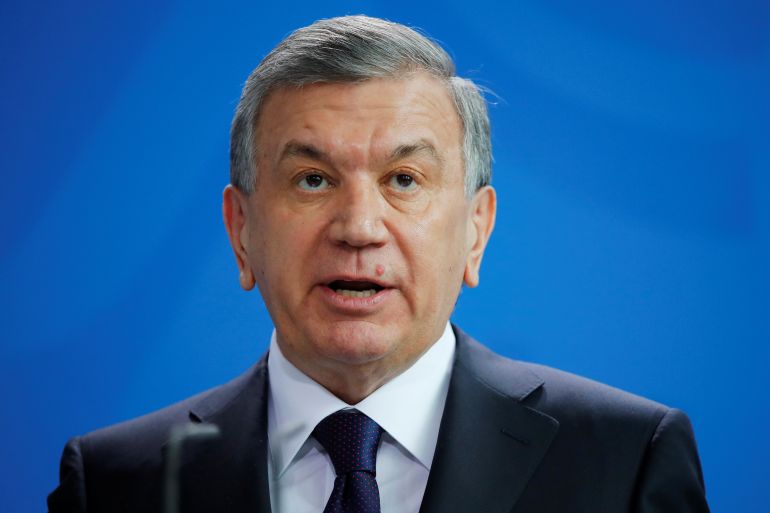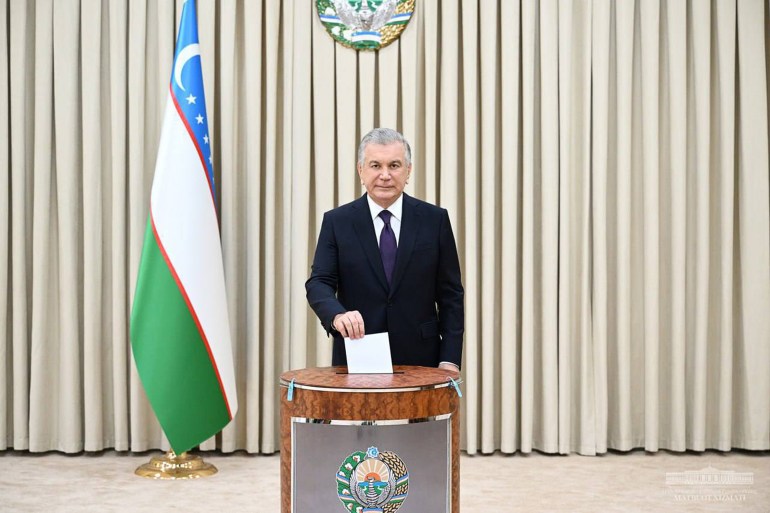Uzbekistan’s leader calls for snap presidential election in July
New poll ordered a week after voters approve constitutional amendments in a referendum allowing President Mirziyoyev to run for two more terms.

Uzbekistan President Shavkat Mirziyoyev has called a snap presidential election on July 9 to give himself a new mandate to help deal with the “sharp and complex processes” going on in the world.
Despite serving fewer than two years of his second term, Mirziyoyev, 65, said on Monday that he felt he needed a new mandate to carry out further reforms in the country.
Keep reading
list of 4 itemsUzbekistan votes on referendum to extend president’s term limits
Uzbekistan jails protesters over anti-government unrest
Uzbekistan puts 22 anti-government protesters on trial
“In the current situation where sharp and complex processes are prevailing in the world and in our region, finding the right and effective path of development and its implementation is becoming the most acute and urgent issue,” the president said.
Uzbek voters approved a package of constitutional amendments in a referendum on April 30, which allow Mirziyoyev to run for two more terms and extends each term to seven years from five.
The constitutional changes could see Mirziyoyev in power until 2040.

Earlier on Monday, Mirziyoyev signed a law to allow the head of state to call for an early election, which could see him serving another term.
On Telegram, the president said, “Using the powers granted to the president of the country by article 128 of the updated constitution, I signed a second important decree. According to it, the presidential elections in our country will be held ahead of schedule.”
There are no significant opposition figures in the country of 35 million people who could compete with Mirziyoyev, who has been praised both at home and abroad for liberalising the former Soviet republic and opening up its economy to foreign trade and investment.
The president, who came to power in 2016 following the death of his predecessor Islam Karimov, has promised more significant social and legal protections.
But election observers from the Organisation for Security and Co-operation in Europe (OSCE) said the referendum was not representative.
“Uzbekistan’s constitutional referendum was technically well prepared and widely promoted as a move to enhance various rights and freedoms, but it took place in an environment that fell short of genuine political pluralism and competition,” an OSCE statement said.